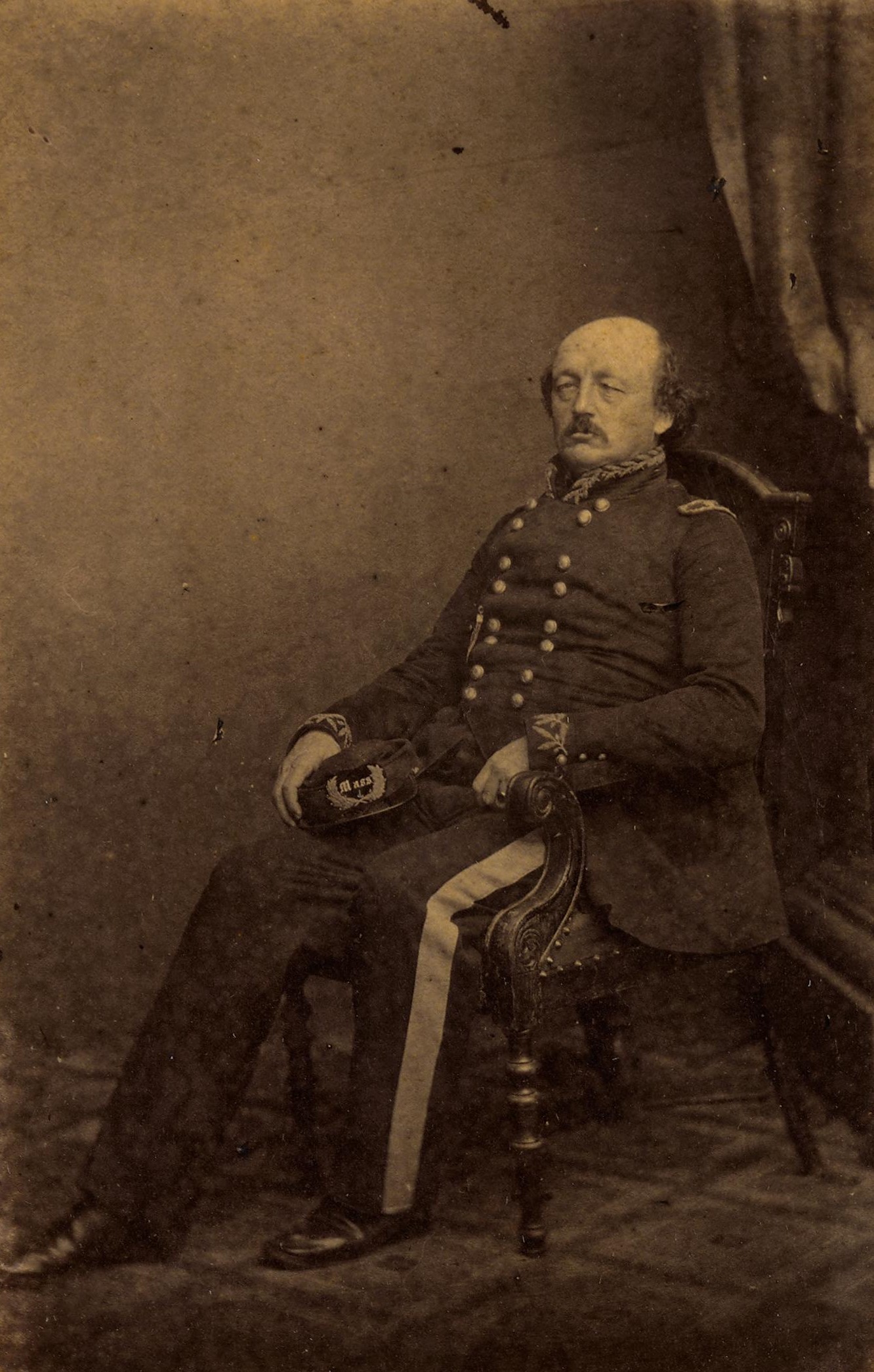Benjamin Franklin Butler
Benjamin Franklin Butler was born on November 5, 1818, in Deerfield, New Hampshire, to John Butler and Charlotte Ellison. His father was a veteran of the War of 1812 who died of yellow fever a few months after Butler was born. He grew up and attended school in Lowell, Massachusetts, and he graduated from Waterville College (present-day Colby College) in 1838. He was admitted to the bar in 1840, and he earned a living as a lawyer in Lowell.
He married Sarah Hildreth on May 16, 1844, and they had four children: Paul, born in 1845; Blanche, born in 1847; Paul, born in 1852; and Ben-Israel, born in 1855. He supported the Democratic Party, and he served several terms in the state legislature in the 1850s. His career as a trial lawyer thrived, and by 1850, he owned $25,000 of real estate. A decade later, he owned $75,000 of real estate and $65,000 of personal property, and his wife owned an additional $8,000 of personal property. In the election of 1860, he supported Southern Democrat John C. Breckinridge.
Butler served as a brigadier general in the Massachusetts militia. In April 1861, he led the 8th Massachusetts Militia Infantry through Maryland into Washington, D.C., to help defend the nation’s capital. Soon afterward, he received a commission as a major general in the Union army, and he was placed in command of Fortress Monroe, Virginia. In May 1861, three enslaved African Americans fled to Fortress Monroe. Butler refused to return the men to bondage, declaring them “contraband of war.”
In May 1862, Butler helped capture New Orleans, Louisiana, and he spent the next several months as the city’s military governor. That September, he helped organize the 1st Louisiana Native Guard, one of the first African American regiments in the Union army. He assumed command of the Department of Virginia and North Carolina in November 1863, and he took part in the Bermuda Hundred campaign and the Battle of Fort Fisher. General Ulysses S. Grant removed him from command after Fort Fisher, citing a “lack of confidence…in [Butler’s] military ability.”
Butler returned to Massachusetts after the war, and he was elected to Congress as a Republican in 1866. While in office, he defended Reconstruction and supported civil rights, women’s suffrage, and an eight-hour workday for federal employees. He played a key role in the impeachment trial of President Andrew Johnson, and he helped draft the Ku Klux Klan Act of 1871 and the Civil Rights Act of 1875. He served as governor of Massachusetts from January 1883 until January 1884, and he ran for president in 1884 as a member of the Greenback Party. He died of a bronchial infection in Washington, D.C., on January 11, 1893.
Image: Benjamin F. Butler (courtesy Library of Congress)
DATABASE CONTENT
| (5268) | Butler, Benjamin Franklin | 1818-11-05 | 1893-01-11 |
- Conflict Side: Union
- Role: Soldier
- Rank in: Brigadier General
- Rank out: Major General
- Rank highest: Major General
- Gender: Male
- Race: White
Documents - Records: 1
- (15243) [writer] ~ Benjamin F. Butler Instructions, 28 September 1864
Places - Records: 2
Groups - Records: 2
SOURCES
1850, 1860, 1870, and 1880 United States Federal Censuses, available from Ancestry.com; “Benjamin Butler” Wikipedia profile, available from en.wikipedia.org/wiki/Benjamin_Butler; Elizabeth D. Leonard, Benjamin Franklin Butler: A Noisy, Fearless Life (Chapel Hill, NC: The University of North Carolina Press, 2022)





